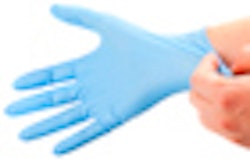Inconsistent sterilization of dental bib holders resulted in a bacterial load of 70%, according to a study conducted by researchers at the University of Witten/Herdecke in Witten, North Rhine-Westphalia, Germany.
Inconsistent sterilization protocols can result in the presence of germs, microorganisms, and pseudomonas on bib chains and holders, the researchers noted in a press release.
The study examined 30 metal and plastic bib holders and found bacteria present on more than half of them. The predominant bacteria were staphylococci and streptococci. But they also found various bacterial rods, pseudomonas, fungi, and other types of cocci, according to Stefan Zimmer, MPHD, PhD, lead investigator of the study and scientific director at the university.
Although the bacteria found in the study were all non-pathogenic, in principle reusable bib holders can cross-contaminate dental patients, Zimmer said.
While the bacteria found on the bib holders in this study do not usually cause disease in healthy people, they can be a threat to immune-suppressed patients, as well as young children and the elderly who also often have compromised immune systems, Zimmer and his colleagues noted. Bacteria from an unsterilized bib holder can enter the body when a patient touches the bib holder or their neck after a dental visit and then rubs an eye or touches their mouth.
Cross-contamination can also occur:
- When a bib chain is splattered with saliva, plaque, blood, and spray from the mouth
- When a bib chain catches onto hair and accumulates the wearer's sweat, make-up, and neck acne
- If a dental worker applies a dirty bib chain with gloved hands before the examination or cleaning



















